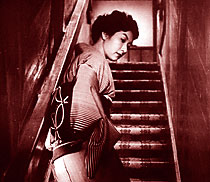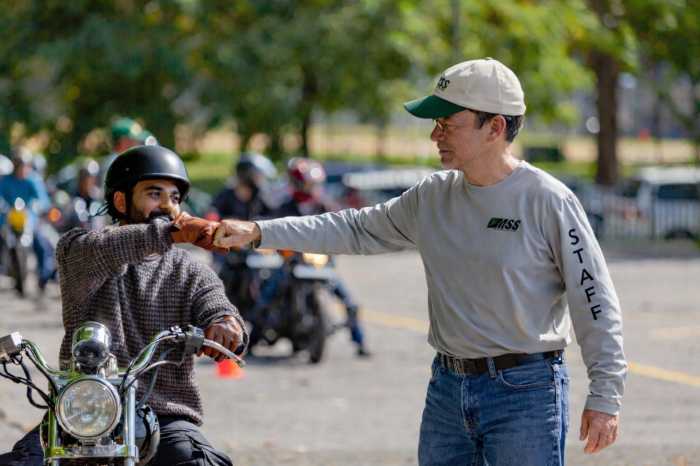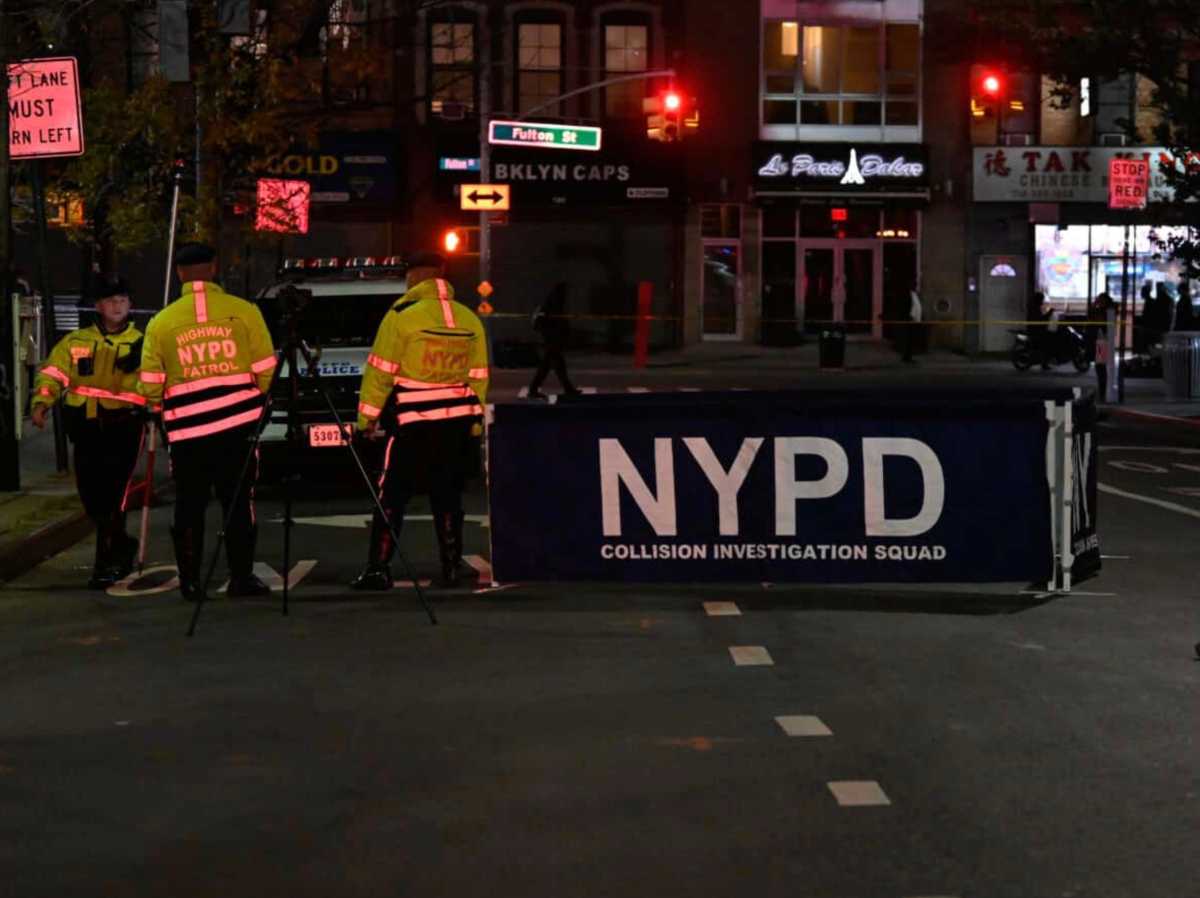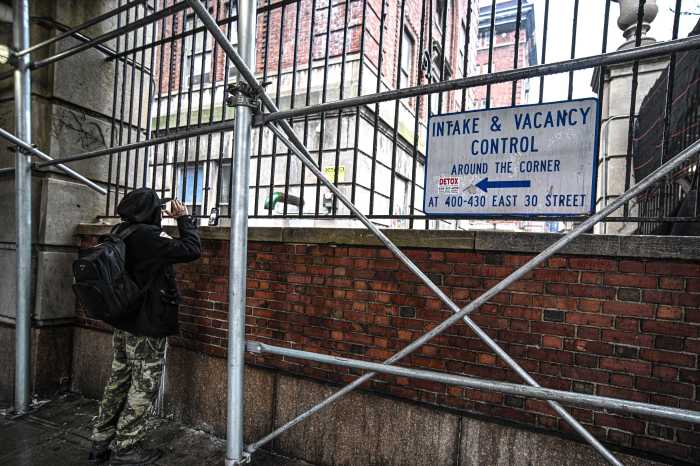Barely known hereabouts – especially compared
with giants like his compatriots Yasujiro Ozu, Masaki Kobayashi
and Akira Kurosawa – is Japanese director Mikio Naruse.
Naruse was also a giant who made films with a grace and humility
of their own; although superficially similar to Ozu – whose career
was also filled with domestic dramas that more often than not
centered on very few principal characters and their quotidian
lives – Naruse did not go in for big spectaculars or the costume
dramas that often marked the work of Kurosawa and Kenji Mizoguchi.
Now, following a Film Forum retrospective last fall honoring
the 100th anniversary of his birth – Naruse died in 1969 – BAMcinematek
is the lone Brooklyn venue for a series running April 27-May
10.
"The Films of Mikio Naruse: The Unknown Japanese Master,"
which includes several newly struck, newly subtitled prints from
the Japan Foundation, is a great opportunity to discover this
humane artist whose explorations of ordinary people can be spoken
of in the same breath as the heartrending profundity of that
ultimate Japanese master Ozu.
Opening the series April 27 is "Wife! Be Like a Rose!"
which Naruse shot in 1935. The first sound film made in Japan
to be released in North America, "Wife!" is a gently
funny look at a young woman’s attempts to bring her separated
parents back together.
Just like Ozu, who titled several films similarly – i.e. "Late
Spring," "Early Summer" or "An Autumn Afternoon,"
Naruse also has a very particular poetry informing the titles
of many of his films. Most obvious are the trio of "Floating
Clouds" (1955), "Summer Clouds" (1958) and "Scattered
Clouds" (1967).
But their similarity begins and ends with their titles. All made
during Naruse’s late period – "Scattered Clouds" was
Naruse’s final film – these films are each epic portraits of
quite specific Japanese milieus.
"Floating Clouds" (May 6) is a surprisingly erotic,
yet ultimately painful, tragedy about a couple seeking to rekindle
an old romance. "Summer Clouds" (May 5), Naruse’s first
film shot both in color and in the widescreen format, was the
director’s initial portrayal of life in the Japanese countryside
as a female farmer (and widow) has an affair with a Tokyo-based
reporter.
As for "Scattered Clouds" (May 10), its story of a
pregnant woman – widowed by a car wreck, who rebuffs financial
assistance from the man who caused the accident – is a wonderfully
fitting final testament from the most generously humane of all
Japanese directors.
One of the director’s very own favorites, "Sound of the
Mountain" (April 28), develops a most affectionate relationship
between an unhappy wife and her kind father-in-law. After the
6:50 pm screening, author Phillip Lopate will host a Q&A
and sign copies of his new book, "American Movie Critics:
An Anthology from the Silents Until Now."
Other Naruse series highlights include films featuring typically
Narusian (to coin a word) heroines, all of whose lives are studied
in a fascinatingly somber way. "Mother" (April 30)
stars the great Japanese actress Kinuyo Tanaka (seen in several
Ozu and Mizoguchi works) as a widow with three children trying
to keep her late husband’s dry-cleaning business. Another feminist
masterpiece, "Late Chrysanthemums" (May 4), is an incisive
character study of a quartet of retired geishas.
Perhaps Naruse’s most notable film is 1960’s "When a Woman
Ascends the Stairs" (May 7). As always in Naruse’s work,
merely recounting the plot makes it sound like a merely melodramatic
soap opera, but here it goes anyway: a young widow named "Mama,"
who works as a nightclub hostess, dreams of opening her own club
at the same time as she fends off various suitors.
That’s it, really, but the director has miraculously taken this
seemingly superficial story and characters and has carefully
and gradually insinuated them into the viewer’s very consciousness
so that, by the time this extraordinarily haunting film comes
to an end, the viewer feels he’s spent two blissful hours with
close friends whom he doesn’t want to leave.
Shot in sparkling, black and white Tohoscope (the Japanese variation
of Cinemascope), "When a Woman Ascends the Stairs"
abounds with many telling touches that bespeak a master director
at work, including a quite judicious use of voiceover, which
gives important and strategic insights into Mama’s mindset, and
Toshirô Mayuzumi’s spare (and sparingly-used) musical score,
whose jaunty melancholy recalls Nino Rota’s best scores for the
films of Federico Fellini.
"When a Woman Ascends the Stairs" is the perfect introduction
to the worldly art of Mikio Naruse, as are any of the other dozen
films being shown at BAM.
"The Films of Mikio Naruse: The Unknown Japanese Master"
will be shown from April 27 to May 10 at the BAMCinematek, 30
Lafayette Ave. at Ashland Place in Fort Greene. Admission is
$10 for adults, $7 for students and seniors. For a complete film
schedule, call (718) 636-4100 or visit the Web site, www.bam.org.

























